Explore the Best AI Image Gallery

Blockchain: Reshaping the Financial Landscape of Creativity
The intersection of finance and creativity has always been a fertile ground for innovation. With the advent of blockchain technology, this landscape is undergoing a profound transformation, offering unprecedented opportunities for artists, creators, and businesses alike.
Blockchain, the decentralized and immutable ledger system, promises to revolutionize how creative works are valued, traded, and protected. By providing transparency, security, and ownership verification, it empowers creators to regain control over their intellectual property and navigate the complex financial ecosystem with greater autonomy.
Unlocking New Avenues for Creators
One of the most significant impacts of blockchain on the creative industry is its potential to democratize access to funding and distribution.
- Crowdfunding Platforms: Blockchain-based crowdfunding platforms enable creators to directly engage with their audience, bypassing traditional gatekeepers like record labels or art galleries. Supporters can invest in projects they believe in, receiving tokens or other rewards based on the projects success.
- Micropayments: Blockchain facilitates seamless micropayment systems, allowing creators to monetize their work on a per-view or per-use basis. This opens up new revenue streams for digital content, music streaming, and interactive experiences.
By cutting out intermediaries and enabling direct relationships between creators and consumers, blockchain empowers artists to retain a larger share of the revenue generated from their work.
Securing Creative Ownership
One of the biggest challenges facing creatives is protecting their intellectual property (IP). Blockchain provides an immutable record of ownership, making it virtually impossible to counterfeit or plagiarize digital assets.
- NFTs (Non-Fungible Tokens): NFTs are unique digital tokens that represent ownership of a specific creative asset, such as artwork, music, or collectibles. They can be traded on decentralized marketplaces, providing creators with verifiable proof of ownership and a way to monetize their work.
- Smart Contracts: These self-executing contracts on the blockchain automate agreements between creators and buyers, ensuring fair compensation and transparent royalty distribution.
This increased security and transparency foster trust in the creative economy, encouraging greater investment and participation.
Ethical Considerations
While blockchain offers tremendous potential for the creative industry, it also raises important ethical considerations.
- Accessibility and Inclusivity: Blockchain technology can be complex to understand and navigate. Its essential to ensure that all creators, regardless of their technical expertise or socioeconomic background, have access to the benefits of blockchain.
- Environmental Impact: Some blockchain networks require significant energy consumption for mining operations. Finding sustainable solutions to reduce this environmental impact is crucial.
- Data Privacy and Security: While blockchain enhances security, its important to ensure that creators personal data and creative assets are protected from unauthorized access and misuse.
Addressing these ethical challenges will be essential for realizing the full potential of blockchain in a way that benefits all stakeholders in the creative ecosystem.
Future Trends
The intersection of blockchain and creativity is constantly evolving, with exciting new trends emerging.
- Decentralized Autonomous Organizations (DAOs): Blockchain-based DAOs will empower creators to collaborate and govern themselves, fostering a more equitable and transparent creative economy.
- Immersive Experiences: Blockchain can enhance virtual reality (VR) and augmented reality (AR) experiences, creating new opportunities for interactive art, storytelling, and audience engagement.
- Cross-Chain Interoperability: As different blockchain networks connect, creators will have access to a wider range of tools and platforms, fostering greater innovation and collaboration.
The future of creativity lies in embracing the transformative power of blockchain. By harnessing its potential for transparency, security, and ownership verification, we can unlock new avenues for artistic expression, empower creators, and build a more inclusive and sustainable creative economy.


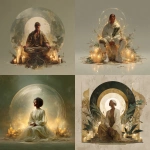














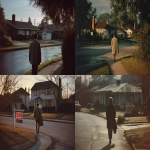




](https://images.ai-img.art/thumbnails/150/c2241c1eabdcb7b9a98be19a7e8d850b6cffe0e0c91c1ccda8dd807e2a96b187.webp)

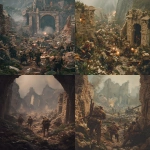
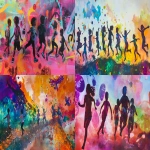









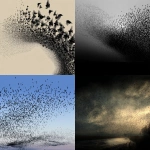

](https://images.ai-img.art/thumbnails/150/44b76c49c47b4c47f13eac7883c63827d3f89aa77fe64ce0cbecb9d3ce434499.webp)


](https://images.ai-img.art/thumbnails/150/c48401bc3fad7ff7f2dbd37b894d3f53cb42d5072dfacb8bfdcdeeef28a29b04.webp)
](https://images.ai-img.art/thumbnails/150/09ccae5e68e2b6da6b5da87ef69f7eb09e80c99ca39ba886c5c3773cbb3b89ba.webp)






](https://images.ai-img.art/thumbnails/150/47d44e177f427ea6b32f96ea225db96c5158850a0cf01d1bad93e45dd4594430.webp)
